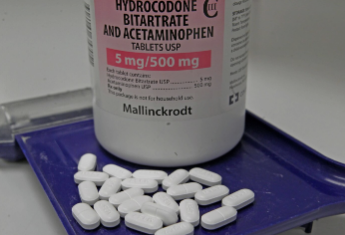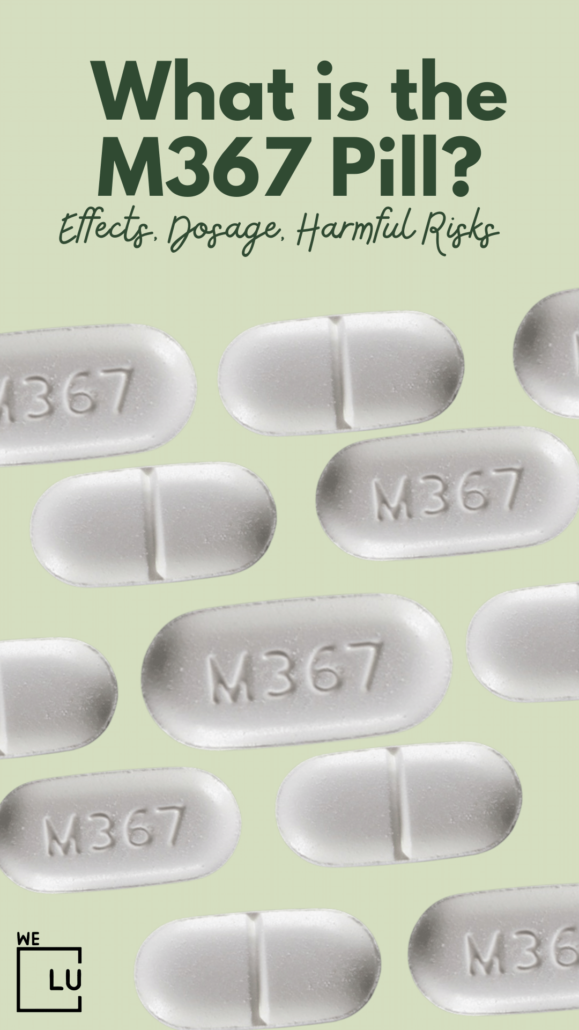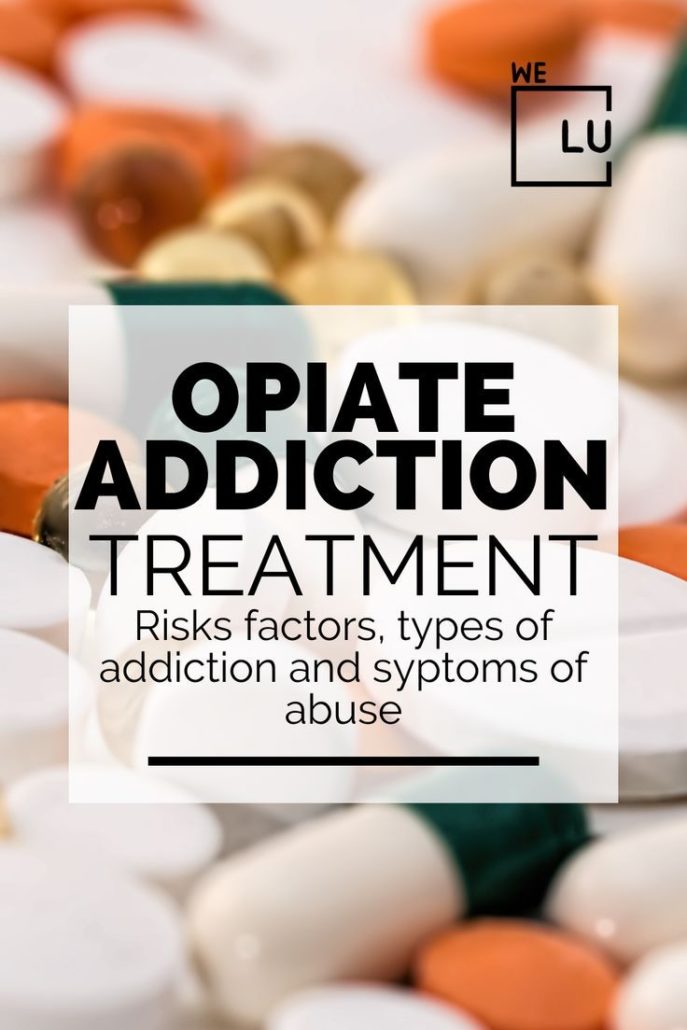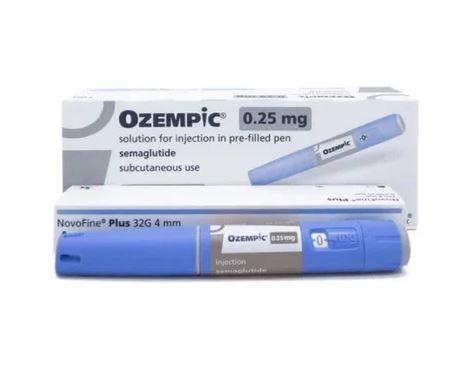Can You Snort Hydrocodone?
Can you sniff hydrocodone? It is not safe to snort hydrocodone. Hydrocodone is an opioid pain medication that is typically prescribed in pill form to be taken orally. When you snort hydrocodone, you are bypassing the normal route of administration and sending the drug directly into your bloodstream through your nasal membranes. This can result in a more rapid and intense onset of effects, but it also increases the risk of harmful side effects.
Snorting hydrocodone can cause damage to the nasal passages, including irritation, inflammation, and the development of chronic conditions such as rhinitis or sinusitis. It can also increase the risk of overdose, as snorting can lead to a higher dose of the drug entering the bloodstream at once.
If you have been prescribed hydrocodone, it is important to follow your doctor’s instructions for use and to avoid snorting or otherwise misusing the medication. If you are struggling with addiction or misuse of hydrocodone, seek help from a medical professional or addiction specialist.
Dangers of Snorting Hydrocodone
What are the real dangers of hydrocodone snorting? Snorting hydrocodone can be dangerous for several reasons:
- Damage to the nasal passages: Snorting hydrocodone can cause irritation, inflammation, and damage to the delicate nasal membranes. This can lead to a range of problems, including chronic rhinitis or sinusitis.
- Increased risk of overdose: When you snort hydrocodone, you are bypassing the body’s natural defenses against overdose, such as the stomach and liver. This means that more of the drug enters the bloodstream at once, increasing the risk of overdose.
- Addiction and dependence: Snorting hydrocodone can increase the risk of addiction and dependence. Over time, the body may become accustomed to the drug, requiring higher doses to achieve the same effect.
- Other health risks: Snorting hydrocodone can increase the risk of other health problems, such as respiratory infections or pneumonia. It can also lead to a range of other problems, such as nosebleeds, loss of sense of smell, and chronic pain.
Overall, snorting hydrocodone is not a safe or recommended method of administration. It is important to follow your doctor’s instructions for taking hydrocodone and to seek help if you are struggling with addiction or misuse of the drug.
What Happens If You Snort Hydrocodone?
What happens when you snort Hydrocodone? When you snort hydrocodone, the drug is absorbed quickly through the nasal membranes and enters the bloodstream rapidly. This can result in a more rapid and intense onset of effects compared to taking the drug orally, as it bypasses the digestive system and the liver, which normally filters out some of the drug.
The effects of snorting hydrocodone can include:
- Euphoria: Hydrocodone is an opioid drug that can produce feelings of euphoria, relaxation, and pleasure.
- Pain relief: Hydrocodone is often used to relieve pain, and snorting the drug can produce rapid relief of moderate to severe pain.
- Sedation: Hydrocodone can cause drowsiness and sedation, which may be more intense when the drug is snorted.
- Respiratory depression: Hydrocodone can slow down breathing, and snorting the drug can increase the risk of respiratory depression, which can be dangerous or even deadly.
- Nausea and vomiting: Snorting hydrocodone can cause nausea and vomiting, which may be more intense compared to taking the drug orally.
- Addiction and dependence: Snorting hydrocodone can increase the risk of addiction and dependence on the drug.
Why Do People Snort Hydrocodone?
People may snort hydrocodone for various reasons, such as:
- Seeking a faster onset of effects: Snorting hydrocodone can result in a more rapid onset of effects compared to taking the drug orally. This may be desirable for people seeking immediate pain relief or a quick “high.”
- Intensifying the effects: Snorting hydrocodone can also produce a more intense euphoric effect compared to taking the drug orally.
- Avoiding oral administration: Some people may find it difficult or unpleasant to take hydrocodone orally, such as those who experience nausea or difficulty swallowing pills. Snorting the drug can be an alternative method of administration.
- Addiction or dependence: People who are addicted to hydrocodone may resort to snorting the drug to achieve a more intense and rapid onset of effects.
However, it is important to note that snorting hydrocodone is not a safe or recommended method of administration. It can increase the risk of harmful side effects, including respiratory depression, overdose, and addiction.
How to snort Hydrocodone?
People may crush hydrocodone tablets into a fine powder using a mortar and pestle or another crushing device, and then use a straw or rolled-up piece of paper to snort the powder through the nostrils. Some individuals may also mix the powdered hydrocodone with a liquid, such as water, and inject the mixture into a vein.

Skip To:
Learn More:
- How Long Does Hydrocodone Stay in Your System?
- How Long Does Vicodin Stay in Your System?
- Vicodin Side Effects
- How Long Does Hydrocodone Stay in Urine?
- Effects of Hydrocodone and Alcohol
- Hydrocodone vs Oxycodone
- Opioid Addiction Treatment
- Prescription Drug Addiction
- Prescription Pill Detox
- Pain Medication List, Strongest to Weakest
- Opiate Withdrawal
- Opiate Detox
- How Long Do Opiates Stay in Your System?
Get Help. Get Better. Get Your Life Back.
Searching for Accredited Drug & Alcohol Rehab Centers Near You? Or Mental Health Support?
Even if you have failed previously, relapsed, or are in a difficult crisis, we stand ready to support you. Our trusted behavioral health specialists will not give up on you. Call us when you feel ready or want someone to speak to about therapy alternatives to change your life. Even if we cannot assist you, we will lead you wherever you can get support. There is no obligation. Call our hotline today.
FREE Addiction Hotline – Call 24/7Hydrocodone Abuse Statistics
Hydrocodone is one of the most frequently prescribed opioids in the United States. More than 136.7 million prescriptions for hydrocodone-containing products were dispensed in 2013. More recently, misuse has significantly decreased from 6.9 million U.S. persons to 5.5 million in 2017 and 2018, respectively.
2.1 million
An estimated 2.1 million in the United States alone abuse opioid pain reliever medications.
Source: NIDA
136.7 million
Hydrocodone is the most frequently prescribed opioid in The United States, with more than 136.7 million prescriptions.
Source: DEA
6.9 million
There were 6.9 million people who experienced hydrocodone misuse in 2017.
Source: NIDA
Hydrocodone Drug Facts
Hydrocodone
Hydrocodone and acetaminophen combination is used to relieve pain severe enough to require opioid treatment and when other pain medicines did not work well enough or cannot be tolerated.
Brand Names
- Anexsia
- Ceta Plus
- Co-Gesic
- Dolorex Forte
- Hycet
- Lorcet
- Lortab
- Maxidone
- Norco
- Stagesic
- Vicodin HP
- Zydone
Common Side Effects
- Stomach pain
- Dry mouth
- Tiredness
- Headache
- Back pain
- Muscle tightening
- Difficult, frequent, or painful urination
Serious Side Effects
- Chest pain
- Hallucinations
- Fever
- Severe muscle stiffness or twitching
- Loss of coordination
- Nausea, vomiting, loss of appetite, weakness, or dizziness
- Inability to get or keep an erection
- Irregular menstruation
- Decreased sexual desire

Can You Smoke Hydrocodone?
No, smoking hydrocodone is not recommended and is not an effective way to use the medication. Hydrocodone is an opioid pain medication that is typically taken orally in tablet or capsule form. Smoking hydrocodone can be extremely dangerous and harmful to the lungs, and it can also increase the risk of overdose and other negative side effects. It is important to always follow the prescribed dosage and administration instructions provided by your healthcare provider when taking hydrocodone or any other medication.
Dangers of Smoking Hydrocodone
Smoking hydrocodone is a very dangerous practice that can have serious negative consequences. Here are some of the dangers associated with smoking hydrocodone:
- Lung Damage: Smoking hydrocodone can cause significant damage to the lungs. The inhalation of smoke and other harmful chemicals can lead to chronic bronchitis, lung cancer, and other respiratory problems.
- Increased Risk of Overdose: Smoking hydrocodone can increase the risk of overdose. This is because smoking delivers the drug directly to the bloodstream, bypassing the body’s natural protective mechanisms. This can lead to an overdose, which can be life-threatening.
- Addiction: Hydrocodone is a highly addictive drug, and smoking it can increase the risk of addiction. The faster onset of effects from smoking can increase the potential for abuse and dependence.
- Other Health Risks: Smoking hydrocodone can also increase the risk of heart

Get Your Life Back
Find Hope & Recovery. Get Safe Comfortable Detox, Addiction Rehab & Mental Health Dual Diagnosis High-Quality Care at the We Level Up Treatment Centers Network.
Hotline (877) 378-4154Hydrocodone Addiction
Hydrocodone is a highly addictive prescription pain medication that belongs to the opioid class of drugs. It is commonly prescribed to relieve moderate to severe pain, but its addictive properties make it a potential drug of abuse. Hydrocodone addiction occurs when a person becomes physically and psychologically dependent on the drug and continues to use it despite the negative consequences it may cause.
Why is Hydrocodone Addictive?
Hydrocodone is addictive because it affects the brain’s reward system, causing a release of dopamine and producing feelings of pleasure and euphoria. The drug binds to opioid receptors in the brain and central nervous system, which reduces pain signals and produces a sense of relaxation. Repeated use of hydrocodone can lead to tolerance, which means that higher doses of the drug are required to achieve the same effects. This can lead to physical dependence, where the body adapts to the presence of the drug and experiences withdrawal symptoms when it is stopped.
Signs of Hydrocodone Addiction
Some signs of hydrocodone addiction may include:
- Taking larger doses of the drug than prescribed or using it more frequently than directed.
- Continuing to use hydrocodone despite negative consequences, such as health problems or legal issues.
- Spending a significant amount of time and money obtaining, using, and recovering from the effects of the drug.
- Neglecting responsibilities, such as work or family obligations, due to hydrocodone use.
- Experiencing withdrawal symptoms, such as nausea, sweating, anxiety, and insomnia, when attempting to stop using hydrocodone.
Comfortable Facilities & Amenities
High-Quality Addiction & Mental Health Rehabilitation Treatment
Rehab Centers TourRenowned Addiction Centers. Serene Private Facilities. Inpatient rehab programs vary.
Addiction Helpline (877) 378-4154Proven recovery success experience, backed by a Team w/ History of:
15+
Years of Unified Experience
100s
5-Star Reviews Across Our Centers
10K
Recovery Success Stories Across Our Network
- Low Patient to Therapist Ratio
- Onsite Medical Detox Center
- Comprehensive Dual-Diagnosis Treatment
- Complimentary Family & Alumni Programs
- Coaching, Recovery & Personal Development Events
Common Prescription Drugs That Contain Hydrocodone
Hydrocodone is often combined with other drugs, such as acetaminophen or ibuprofen, to enhance its pain-relieving effects. Some common combinations include:
- Hydrocodone-acetaminophen (Vicodin, Norco) – This combination drug contains hydrocodone and acetaminophen, which work together to relieve pain. However, taking too much acetaminophen can cause liver damage, so it’s important to follow the recommended dosage.
- Hydrocodone-ibuprofen (Vicoprofen) – This combination drug contains hydrocodone and ibuprofen, which is a nonsteroidal anti-inflammatory drug (NSAID) that can help reduce pain and inflammation.
- Hydrocodone-aspirin (Lortab ASA) – This combination drug contains hydrocodone and aspirin, which is another NSAID that can help relieve pain and reduce inflammation.
- Hydrocodone-homatropine (Hycodan) – This combination drug contains hydrocodone and homatropine, which is used to treat cough and cold symptoms.
Can You Mix Hydrocodone and Alcohol?
It is not recommended to mix hydrocodone and alcohol as it can be dangerous and potentially life-threatening. Both hydrocodone and alcohol can cause central nervous system depression, which can lead to slowed breathing, decreased heart rate, and loss of consciousness.
Mixing these substances can also increase the risk of liver damage and other negative health consequences. Additionally, both hydrocodone and alcohol can impair judgment and coordination, making it unsafe to operate machinery or drive while under their influence.

World-class, Accredited, 5-Star Reviewed, Effective Addiction & Mental Health Programs. Complete Behavioral Health Inpatient Rehab, Detox plus Co-occuring Disorders Therapy.
CALL (877) 378-4154End the Addiction Pain. End the Emotional Rollercoaster. Get Your Life Back. Start Drug, Alcohol & Dual Diagnosis Mental Health Treatment Now. Get Free No-obligation Guidance by Substance Abuse Specialists Who Understand Addiction & Mental Health Recovery & Know How to Help.
What is the Difference Between Hydrocodone and Oxycodone?
Hydrocodone and oxycodone are both prescription opioids used to treat pain, but there are some differences between the two medications.
- Chemical Composition: Hydrocodone is a semi-synthetic opioid derived from codeine, while oxycodone is a fully synthetic opioid.
- Potency: Oxycodone is generally considered to be more potent than hydrocodone, meaning that a smaller dose of oxycodone may be needed to achieve the same level of pain relief as a larger dose of hydrocodone.
- Availability: Hydrocodone is typically combined with other medications such as acetaminophen or ibuprofen and is available in both immediate-release and extended-release formulations. Oxycodone is available in both immediate-release and extended-release formulations, but is usually prescribed on its own without additional medications.
- Approved Uses: Hydrocodone is primarily used to treat moderate to severe pain, while oxycodone is used to treat moderate to severe pain as well as chronic pain.
- Side Effects: Both medications can cause similar side effects such as nausea, dizziness, and constipation, but oxycodone is more likely to cause respiratory depression, especially when used in higher doses.
Experience Transformative Recovery at the We Level Up Treatment Center.
See our authentic success stories. Get inspired. Get the help you deserve.



Start a New Life
Begin with a free call to an addiction & behavioral health treatment advisor. Learn more about our dual-diagnosis programs. The We Level Up treatment center network delivers various recovery programs at each treatment facility. Call to learn more.
- Personalized Care
- Caring Accountable Staff
- Comfortable Amenities
- Licensed & Accredited
- Renowned w/ 5-Star Reviews
We’ll Call You
Hydrocodone Abuse Treatments
Prescription Drug Abuse Treatment NJ
There is a strong link between mental health and prescription drug abuse. Individuals who struggle with mood disorders like depression and anxiety are more susceptible to developing an addiction to drugs or alcohol, often to self-medicate symptoms of their underlying mental health condition. These co-occurring disorders can make each other worse without proper treatment.
To determine the most effective ways to treat polysubstance, it’s crucial to first get an accurate assessment of all the symptoms. When the symptoms have been evaluated by a mental health professional, it may be determined that another form of mental condition is present and needs a particular type of treatment. Very often, some combination of psychotherapy, medication, and/or lifestyle changes are effective for coping with functional.
Detox Treatment in New Jersey Rehab Center
The first step in treatment is a medical detox. It will help you navigate the complicated withdrawal process, but it doesn’t address patterns of thought and behavior that contribute to drug abuse. Various treatment approaches and settings can help provide the ongoing support necessary to maintain long-term sobriety after your complete detox.
Cravings are very common during detox and can be challenging to overcome. This often leads to relapse. Constant medical care provided during inpatient treatment helps prevent relapse. Clinicians can provide the necessary medication and medical expertise to lessen cravings and the effects of withdrawals.
Psychotherapy
Several different modalities of psychotherapy have been used in the treatment of depression, including:
- Cognitive Behavioral Therapy (CBT) – is an effective treatment that involves making changes in both the patterns of negative thoughts and the behavioral routines which are affecting the daily life of the depressed person for various forms of depression.
- Dialectical Behavioral Therapy – is a comprehensive mental health and substance abuse treatment program whose ultimate goal is to aid patients in their efforts to build a life worth living. The main goal of DBT is to help a person develop what is referred to as a “clear mind.”
- Person-Centered Therapy – is a strategy that allows and encourages clients to understand and resolve their concerns in a safe, supportive environment.

Dual Diagnosis Treatment Centers New Jersey
Substance abuse and mental health disorders often co-occur. In many cases, traumatic experiences can result in mental health disorders and substance abuse. Dual diagnosis programs in New Jersey treat both of these issues together. The best approach for the treatment of dual diagnosis is an integrated system. In this strategy, both the substance abuse problem and the mental disorder are treated simultaneously. Regardless of which diagnosis (mental health or substance abuse problem) came first, long-term recovery will depend largely on the treatment for both disorders done by the same team or provider.
Medication-Assisted Treatments
Medication-Assisted Treatments (MAT) for substance use disorders and mental health disorders are commonly used in conjunction with one another. This includes the use of medications and other medical procedures. During your rehab, the staff from your treatment facility will help you identify what caused your addiction and teach you skills that will help you change your behavior patterns and challenge the negative thoughts that led to your addiction. Sometimes, the pressures and problems in your life lead you to rely on substances to help you forget about them momentarily.
Now that we’ve answered the question ”How long does it take for hydrocodone to kick in” and learned about its addictive properties and the risks that come along with its abuse. It is important to reach out for professional help if you or a loved one are struggling with long-term Hydrocodone side effects and addiction. Contact one of our helpful treatment specialists today. We Level Up rehab center in New Jersey can provide information on dual diagnosis and detox programs that may fit your specific needs.
Search We Level Up NJ “Can You Snort Hydrocodone? Effects, Dangers & Overdose” Topics & Resources
Sources
[1] Hydrocodone (Trade Names: Vicodin®, Lortab®, Lorcet-HD®, Hycodan®, Vicoprofen®) (usdoj.gov)
[2] Hydrocodone: MedlinePlus Drug Information
[3] Hydrocodone Combination Products: MedlinePlus Drug Information
[4] Hydrocodone | C18H21NO3 – PubChem (nih.gov)
[5] Hydrocodone and Acetaminophen – StatPearls – NCBI Bookshelf (nih.gov)
[6] Prescription Opioids DrugFacts | National Institute on Drug Abuse (NIDA) (nih.gov)
[7] Opioids | National Institute on Drug Abuse (NIDA) (nih.gov)
[8] DailyMed – HYDROCODONE ACETAMINOPHEN- hydrocodone, acetaminophen tablet (nih.gov)





